Gas vs charcoal BBQ - which type should you buy? Experts explain
Unsure whether to invest in a gas or charcoal BBQ? We weigh up the pros and cons of these two BBQ types…

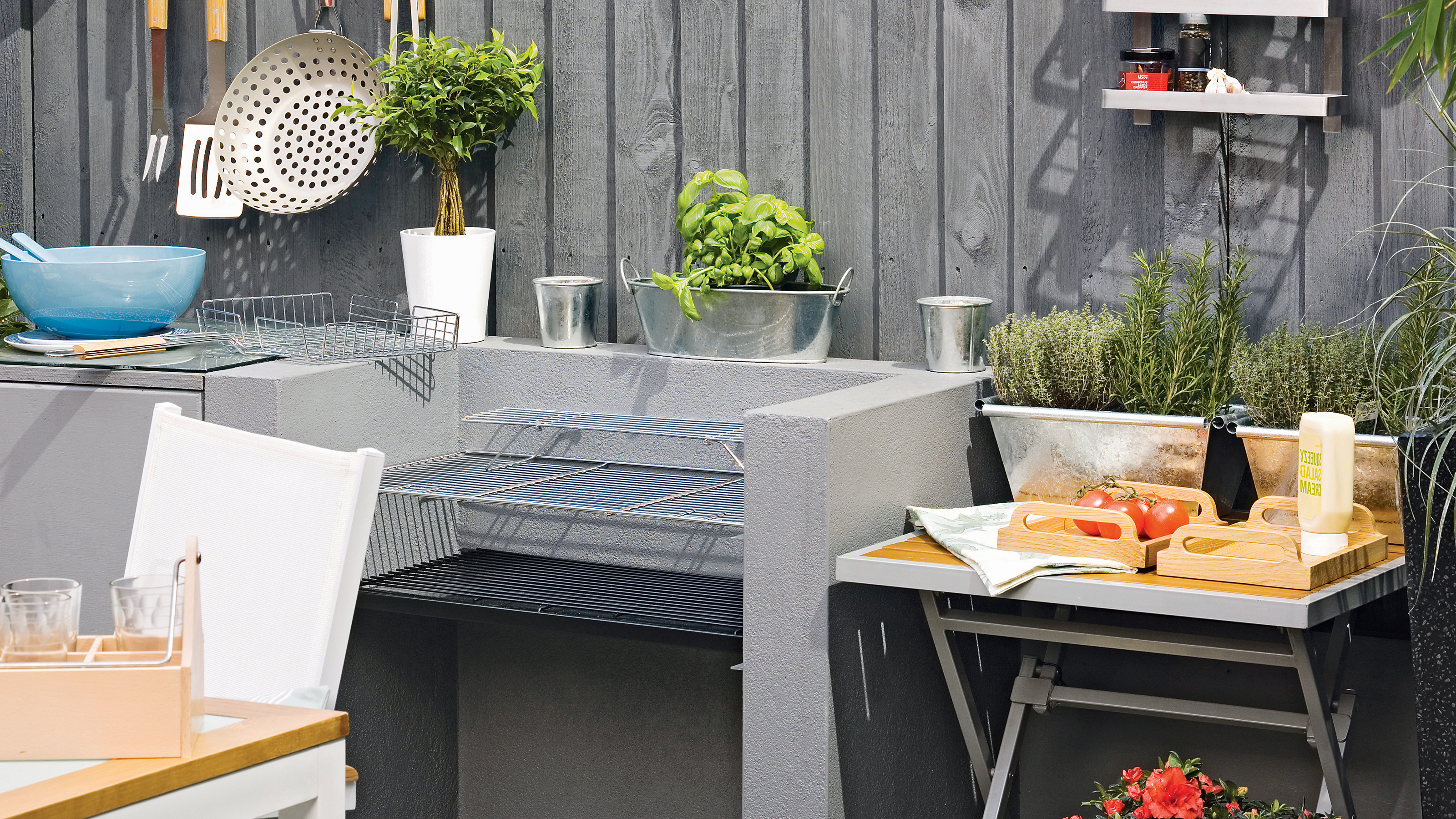
For many of us, the taste of barbecue-grilled food is one of the best things about summer, so deciding which BBQ to add to our garden is a task we shouldn't take lightly. And if you're stuck between a gas vs charcoal BBQ, knowing the differences between the two will help you make a purchasing decision you won't regret.
The best BBQs serve up delicious food without it feeling like a huge mission; get one that's also easy to clean and you're winning. But which fuel type is better for alfresco cooking, charcoal or gas? Deciding between one of the best gas BBQs vs charcoal BBQ can be tricky, which is why it's important to get clued up on the differences between the two.
'Gas BBQs used to promise convenience, feeding the crowds quickly with their quick, searing heat', says Ben Forte, Global Marketing Manager, Kamado Joe and Masterbuilt. 'But over the past couple of years, new technology has seen BBQ brands race to make charcoal grilling just as efficient, easy to use and fast.'
So which of these popular BBQs comes out on top? Whether you're looking to add to your already flourishing outdoor kitchen ideas, or you're a barbecuing novice looking to purchase your first ever garden grill, our guide deep dives the gas vs charcoal BBQ debate so you can decide which one is right for you.
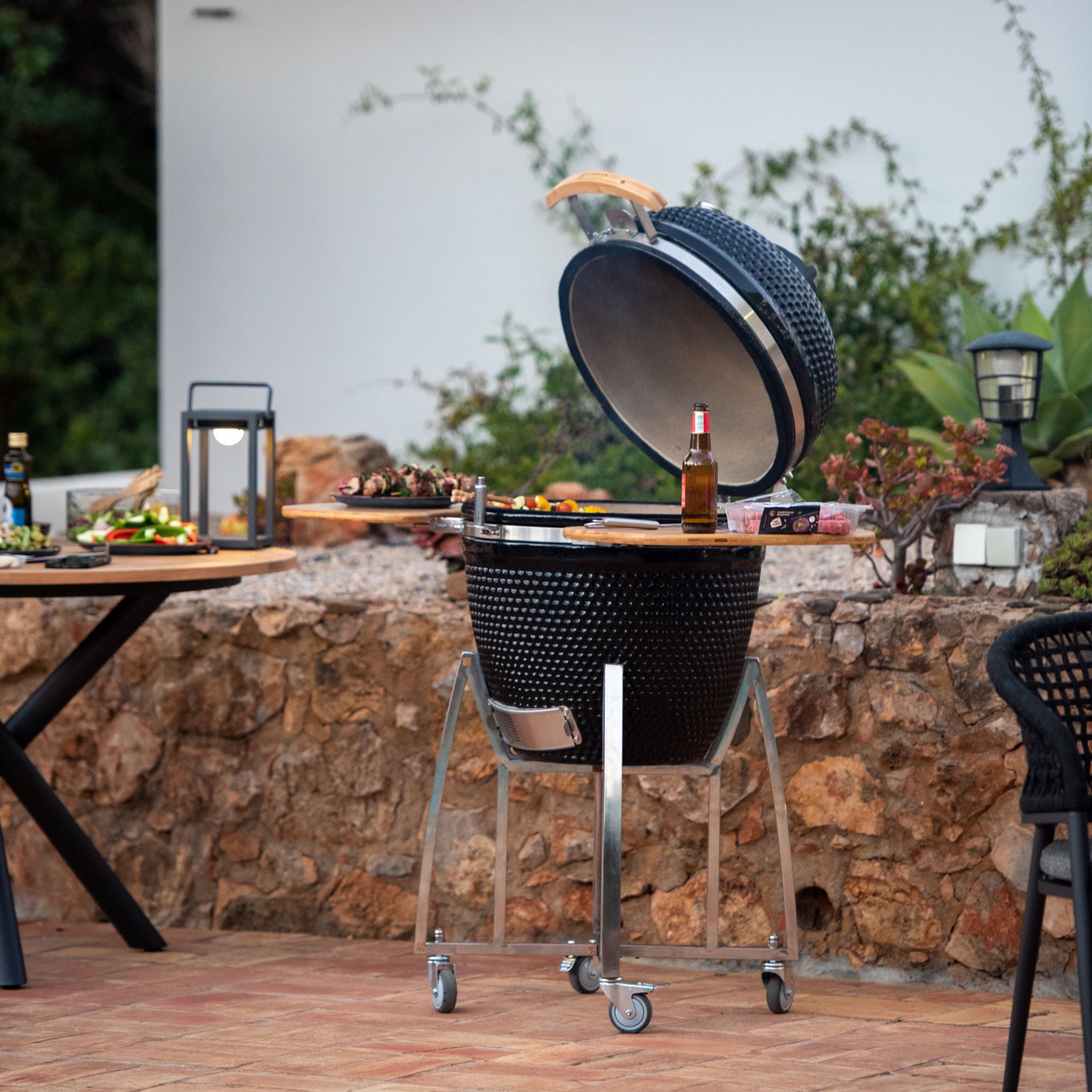
Gas vs charcoal BBQ
We've asked the experts to share the differences between gas vs charcoal BBQs, focusing on ease of use, how they cook food, price point, plus which is easier to clean and maintain. You'll soon know which type of BBQ you're better suited to, so you can start enjoying all the barbecues your heart desires.
Gas vs charcoal BBQs: which is easier to use?

'While both gas and charcoal can be quick and easy to use, gas barbecues are a little less messy to set up; likely making them a good midweek solution for cooking up a meal outdoors', says Caroline Morris, Head of Sales, BAR-Be-Quick.
Gas BBQs are generally easier to use than charcoal BBQs, with some models able to cook food in as little as 10 minutes. The heat produced from the gas is direct and consistent, so food can be seared with ease. Heat control is more of a struggle with a charcoal BBQ, as you're working with live fire, which can take a while to get going in the first place.
Sign up to our newsletter for style inspiration, real homes, project and garden advice and shopping know-how
That being said, lighting a fire in a charcoal BBQ is a lot easier if you invest in a charcoal chimney. You won't need to rely on firelighters or lighter fluid, and you'll be able to light the charcoals with some newspaper. The oxygen will funnel up through the coals and you'll be able to start cooking after 20-30 minutes. Still, gas BBQs can be turned on with the simple flick of a switch, so they're definitely the easier option, especially for beginners.
Gas vs charcoal BBQs: which is better for cooking?
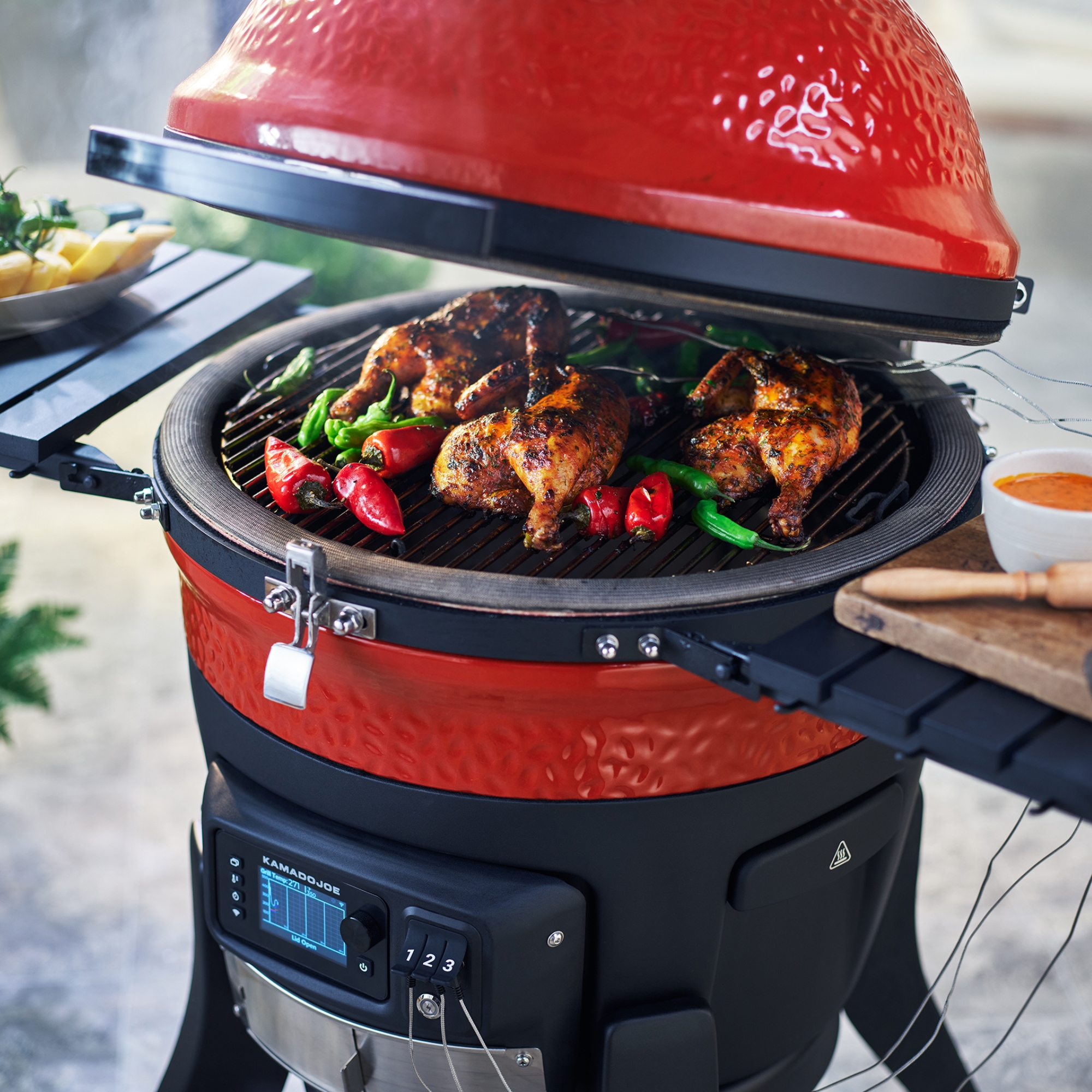
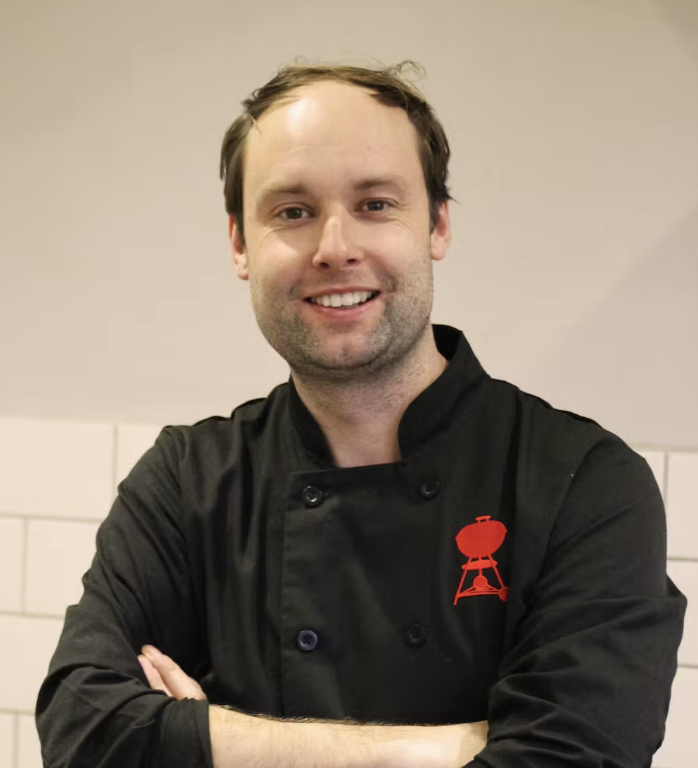
Dan has worked for Weber for 8 years, and is currently Weber's Head Grill Master. The Head Grill Master is similar to an executive chef position and Dan's role involves over-seeing all food related activities. This covers everything from developing recipes, whether for the Weber website, demonstrations at retail stores or festivals; to training the Weber Grill Academy chefs on new courses or working with hotel and restaurant partners, so it's fair to say Dan knows his stuff when it comes to cooking on a BBQ.
Though gas BBQs are generally easier to use, they are less efficient when it comes to retaining heat, which basically means you're more restricted with what you can cook. But once the fire's going on a charcoal BBQ, it will retain a consistent level of heat, meaning you can slow-cook larger pieces of meat if you want to.
'Gas barbecues reduce the overall radiant heat (unless the lid is closed) as they don’t have the blanket of heat underneath like charcoal barbecues, plus they have a cooler burning rate', Caroline explains. 'Whereas charcoal barbecues are versatile and can be used to cook at high or low temperatures - if you have the patience for cooking - and once the charcoal is hot and ready to go, you can sear meats quickly, slow-cook large cuts of meat or cook with indirect grilling using the smoke.'
And in terms of the tastiness of the results, many people prefer food cooked on a charcoal BBQ over gas. 'The main benefit of charcoal BBQs is the charcoal flavour', says Dan Cooper, Head Grill Master, Weber. 'It offers a unique taste, and different cooking variations can also be used to impart different methods whilst the food is being cooked. Put simply, it offers a flavour that a griller cannot get in any other way.'
'Nothing beats the taste of cooking on coals,' Caroline agrees. 'Whilst ‘flavourising’ bars on the gas barbecues add an element of authentic flavour, nothing beats the natural smoky flavour of a charcoal barbecue.'
However, before you immediately choose charcoal for the flavour, it's important to remember that the gas vs pellet grill debate exists, too.
Gas vs charcoal BBQs: which is easier to clean?
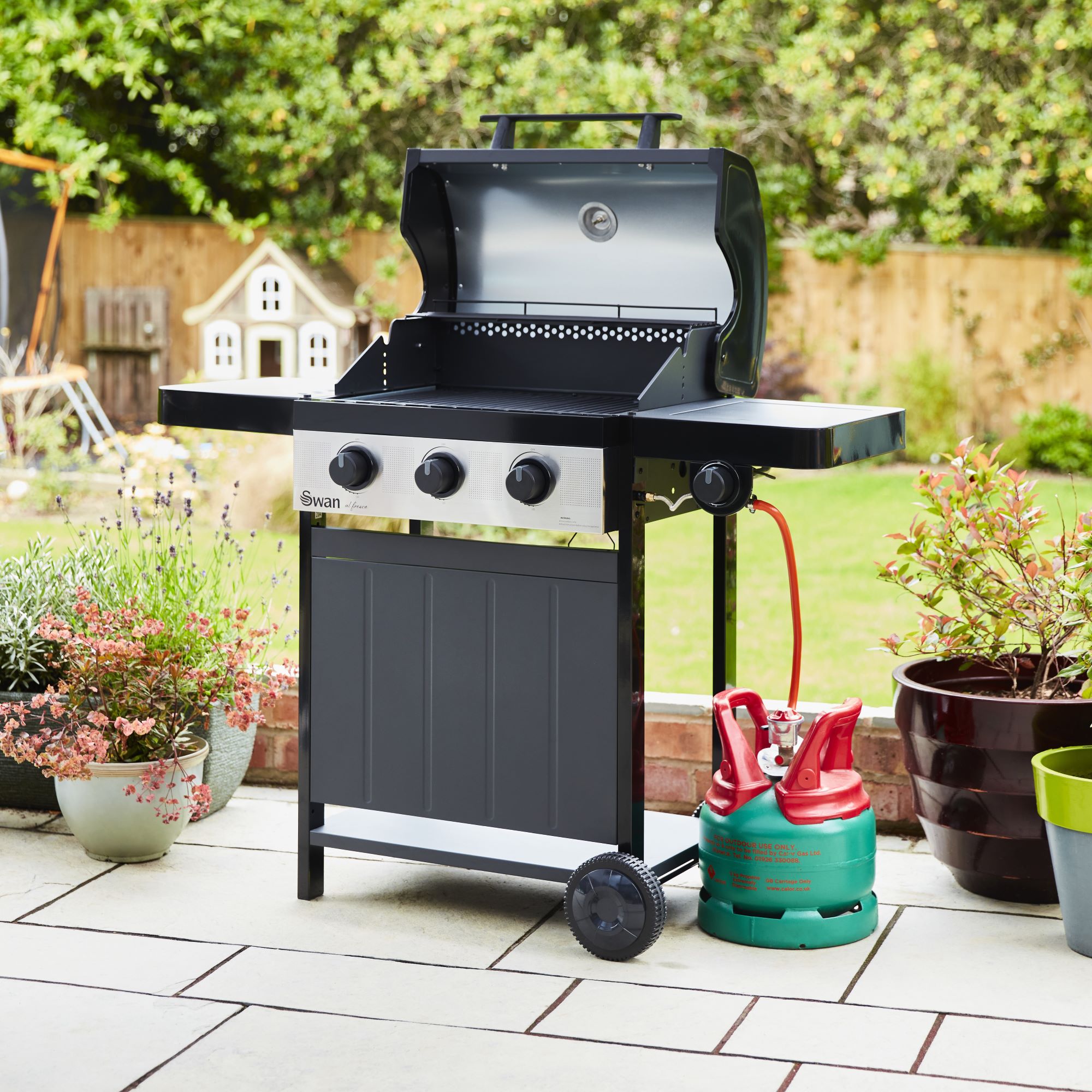
If cleaning is an important factor for you when deciding between a gas vs charcoal BBQ, you may be swayed towards a gas model, as these tend to be much easier to clean. Cleaning a BBQ is never a quick job, but charcoal models have the added labour of clearing away the ash after each use.
'As a gas barbeque is quite similar to an oven or gas hob, the only nuisance when cleaning is the fiddly knobs and separate parts', says Stephen Tombs, cleaning Expert and Founder, Quean Clean. 'However, with charcoal grills, locating all the ash and deep cleaning each time between uses makes them harder to clean.'
The ashy remains from the charcoal fire requires a fair bit of elbow grease before your BBQ is clean again. You'll need to use a BBQ cleaning product, like the Inspired BBQ and Grill Cleaner, £5.22 at Amazon, to get rid of the grease, food, and ash.
Gas vs charcoal BBQs: which is cheaper?
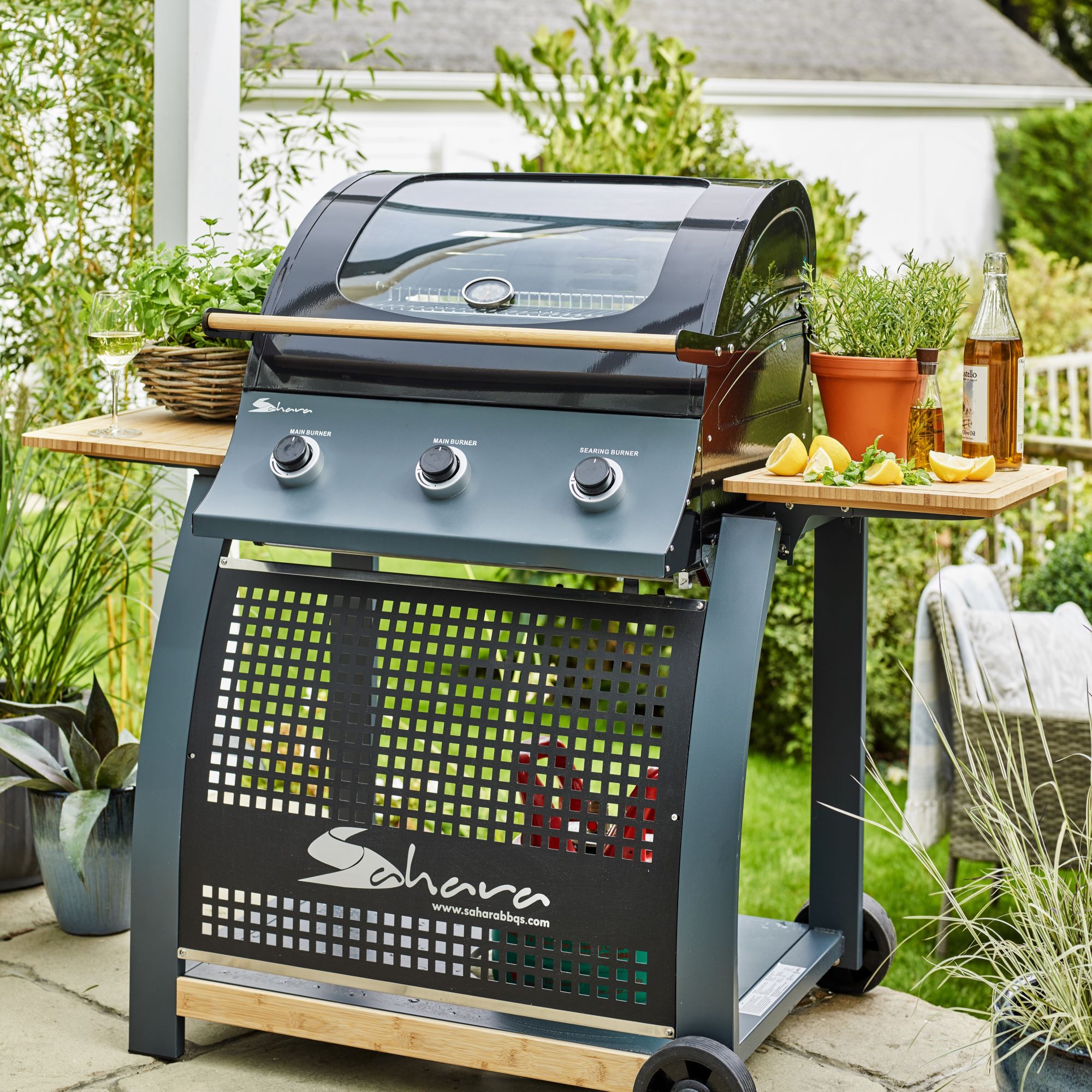
'Most charcoal domestic barbecues will start at a lower cost point than gas grills', says Dan from Weber. 'However, some insulated charcoal barbecues and smokers will fetch a high price closer to that of a large gas grill.'
Charcoal BBQs tend to be cheaper than gas ones, both in terms of the upfront cost and in the ongoing cost of fuel. Charcoal grills usually have a more simple design with less moving parts, whereas good quality gas BBQs tend to be bigger and more sophisticated in their design. This is something we delve into further in our Everdure vs Weber debate.
You can buy large bags of charcoal at affordable prices, like the Diall Instant Light Charcoal, 6kg for £1 at B&Q, which you'll get a good few barbecues out of. Fuel for gas BBQs can be a little more tricky to find, and will cost a few more pennies.
'With a well-insulated ceramic grill, a handful of good quality charcoal can provide enough fuel for a low and slow 10 hour cook, you can then close the vents on the BBQ and cook on the same charcoal again another time', says Ben from Kamado Joe and Masterbuilt. 'You might use the residual heat to cook bread, meringues, jacket potatoes. The equivalent in gas would be more expensive.'
Gas vs charcoal BBQs: final verdict
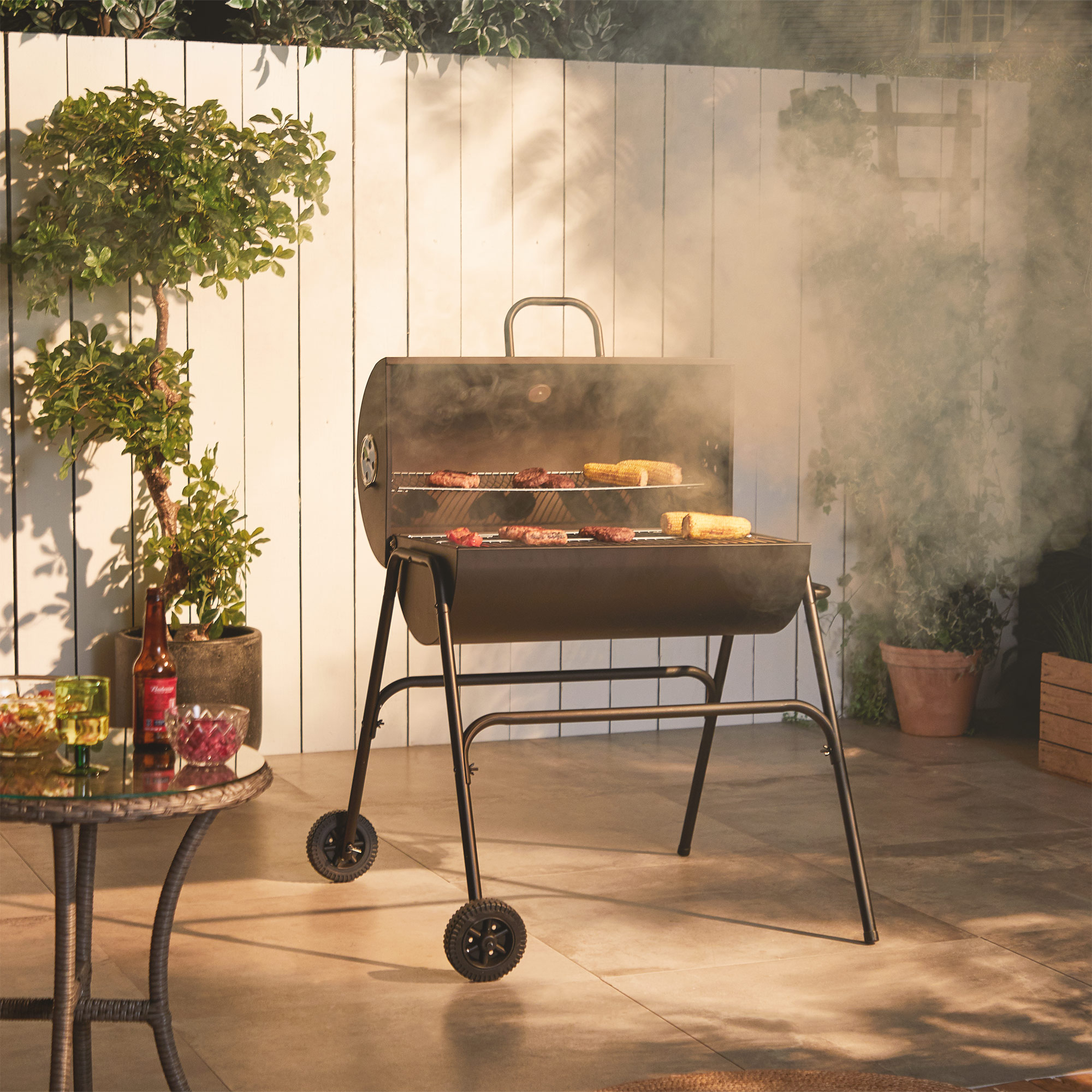
Weighing up the winner in the gas vs charcoal BBQ debate is tricky, as it really comes down to personal preference. If you're after a no-fuss, easy to use grill that you can use mid-week whenever the weather takes your fancy, a gas BBQ will probably be the better option. But if you're a keen backyard entertainer and you like to host large numbers of people, offer them a variety of food and really want to create that authentic barbecue taste, a charcoal BBQ is the one for you.
'Barbecue lovers have long opted for charcoal to impart an authentic, distinctive smoky flavour and deliver the essence of great outdoor cooking that you don’t get with gas', says Ben from Kamada Joe. 'With minimal smoke, charcoal burns hotter than gas and gives the versatility to flash-sear at scorching temperatures, or slow-cook for hours.'
You can still cook some delicious tasting food on gas BBQs though, and many people prefer these models because they don't have to faff around with live fire, which is more difficult to control.
'With a gas barbecue, there’s no waiting around for the fire to die down before you can cook', explains Chris Stuckey, Senior Marketing Manager UK, Campingaz. 'With the push of a button, you can light your gas barbecue and be ready to cook in around 5 minutes. You also have the benefit of being able to easily and quickly adjust the heat of your barbecue by turning the power controls, just like you would in your kitchen.'
Charcoal BBQs also require a little more effort when it comes to cleaning and maintenance as well. But for many people, using charcoal as fuel is worth the extra time and effort, because of the better results at the end of cooking. So in deciding between gas vs charcoal BBQ, make sure you weigh up what's more important to you; you'll probably fall into one of two categories.
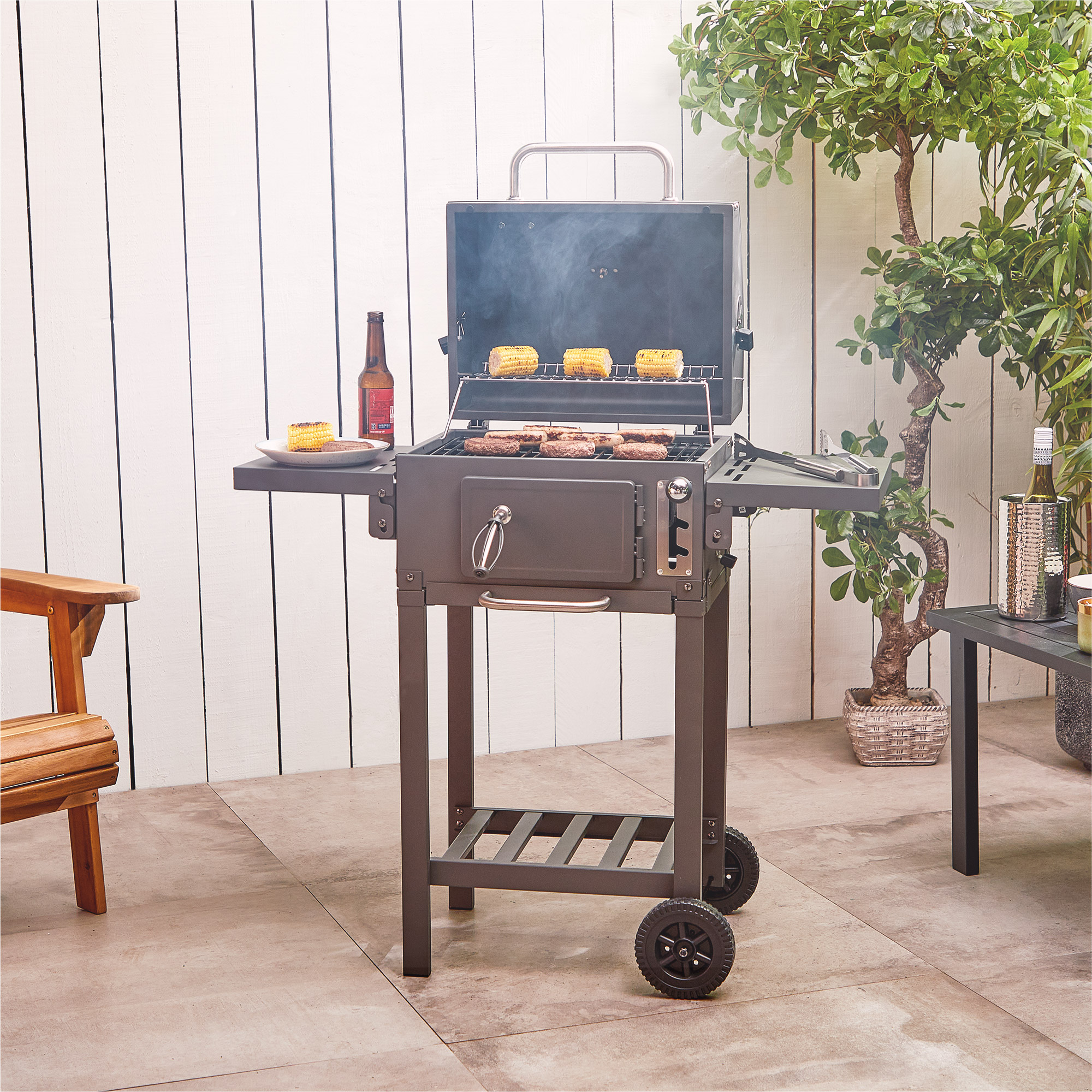
Is charcoal BBQ better than gas?
Charcoal BBQs are certainly the more traditional choice compared to newer gas models. Many people prefer grilling food over a live fire, because it can create the barbecue flavour much better than the heat created by gas.
'Barbecue fanatics would choose charcoal any day over gas, because it's the essence of outdoor cooking - nurturing the coals and letting the smoke permeate through the food for a more authentic taste', says Ben Forte.
But judging which is 'better' out of gas vs charcoal BBQs doesn't always just come down to taste. If you're looking for a no-faff BBQ that is still capable of creating delicious food, gas BBQs are more ideal than charcoal. 'There’s a reason why we say that ‘we’re cooking on gas’ as soon as we start making rapid, efficient progress with something', says Chris from Campingaz. 'You also have much more control over your cooking so you can easily grill food to perfection.'
Deciding which is better really comes down to whether you're prepared to spend more time using a charcoal BBQ to achieve that really authentic barbecue flavour, or whether you're happy with some nicely grilled food that took less than half the time to make.
Do gas BBQ taste like charcoal?
With a charcoal BBQ, it's easier to get that smokey charred taste which we all know and love. Gas BBQs will struggle to get the same taste exactly, though there is a way you can replicate it.
'Charcoal BBQ's are great for larger and meatier dishes, such as ribs, brisket, and pulled pork, as the longer cooking time allows for the deliciously smokey flavours to be released into the meat', says Patrick Bridge, COO, Harbour Lifestyle. 'Alternatively, gas BBQ's are better for dishes with a shorter cook time, such as burgers and sausages, due to their speedy heat up process.'
'With charcoal you get extreme heat over the coals, which is what creates that lovely charred taste, and more moderate heat away from the coals', explains Chris. 'To mimic this with a gas barbecue, using high heat for searing or turning one side of your barbecue’s burners on high and the other half on low or turned off, for indirect cooking. This will create more maillard (browning) reactions in the meat proteins, which translates to that great BBQ flavour.'
Which side do you fall on in the gas vs charcoal debate?

Katie has been writing freelance since early 2022, specialising in all things homes and gardens, following achieving a Masters in Media and Journalism. She started out writing e-commerce content for several of Future’s interior titles, including Real Homes, Gardeningetc, Livingetc, and Homes and Gardens. Since then she’s been a regular contributor on Ideal Home’s digital team, covering news topics, how-to guides, and product reviews.